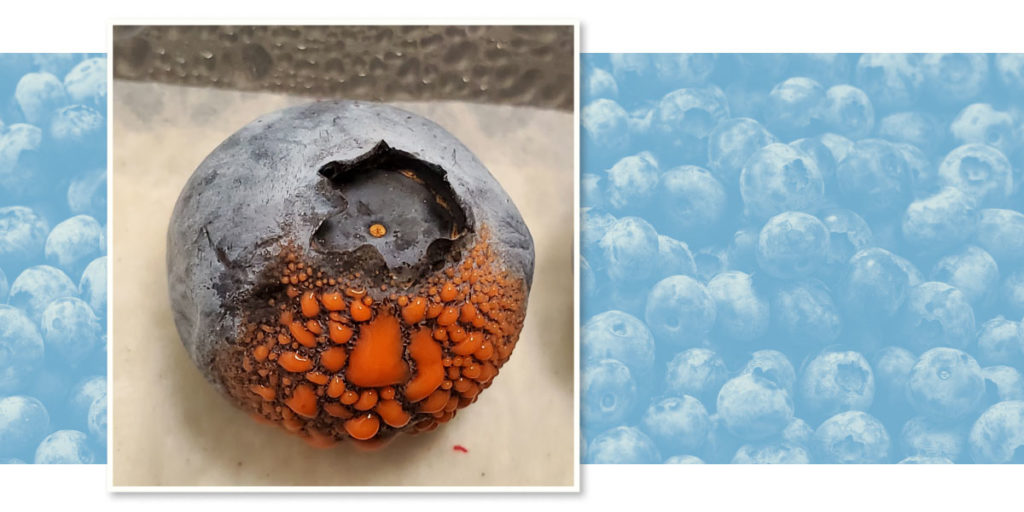By Clint Thompson
Florida’s conventional blueberry growers dodged the proverbial disease bullet this past season following a late January freeze event that impacted the Southeast. Georgia’s producers were not so fortunate with a mid-March freeze event, says Phil Harmon, professor and Extension plant pathologist at the University of Florida.

Photo by A. Gama, University of Florida
“The big story early in the year was the late freeze. That hurt our folks a little further north in the state and in Georgia as well. With that freeze damage came some secondary rots; ripe rot, anthrancose fruit rot. It was pretty severe where we had those freezes and freeze damage. We saw an uptick in botrytis gray mold which is another fruit rot which tends to follow freeze damage and damaged fruit,” Harmon said. “The conversations I had with South Georgia growers was they got hit pretty hard with ripe rot just because of that reason. The freeze damage damaged that fruit. At some point it gets damaged enough that there’s no recovering it, and you get soft fruit. It could take a couple of weeks to even a month later for that internal damage, the death of the core of the berry, to show up.
“We certainly had some losses in north and central Florida but nothing like we saw in Georgia. Just a couple of degrees of difference made a huge difference. I think most of my growers here in Alachua County reported back that they were able to freeze protect successfully. With those timely fungicide applications, they were able to have a pretty good harvest, pretty good year.”
The drop in temperatures also significantly impacted the state’s organic blueberry producers. Those growers are not as equipped to prevent these type of diseases from occurring, Harmon says.
“Where it was the worst was with our organic fruit producers that have few good options for preventing these sort of diseases,” Harmon noted. “Overall, I think conventional growers had protective fungicides out because they knew the freeze was coming and they were going to have to freeze protect against weather that was going to be conducive to disease. They did pretty good. The organic guys took a hit for sure.”









